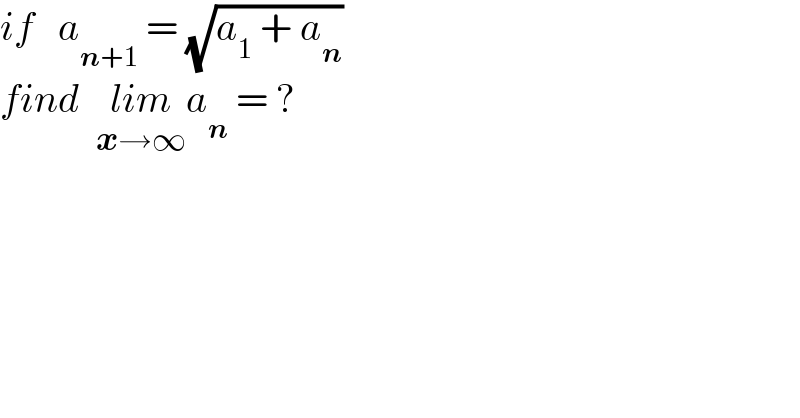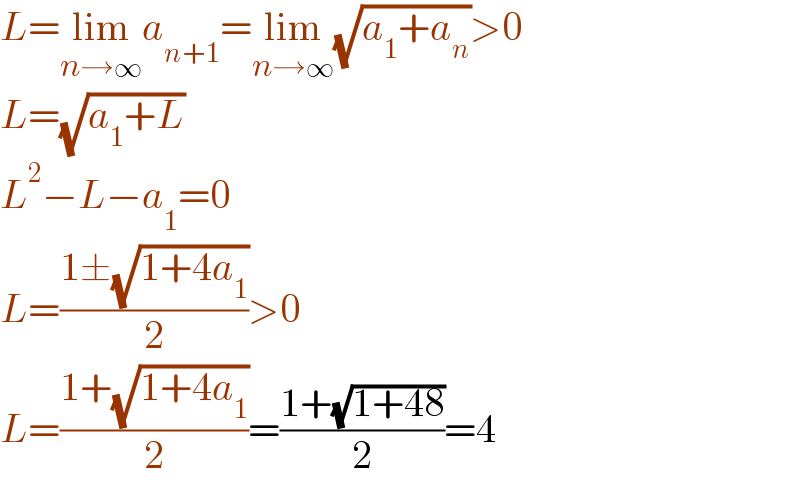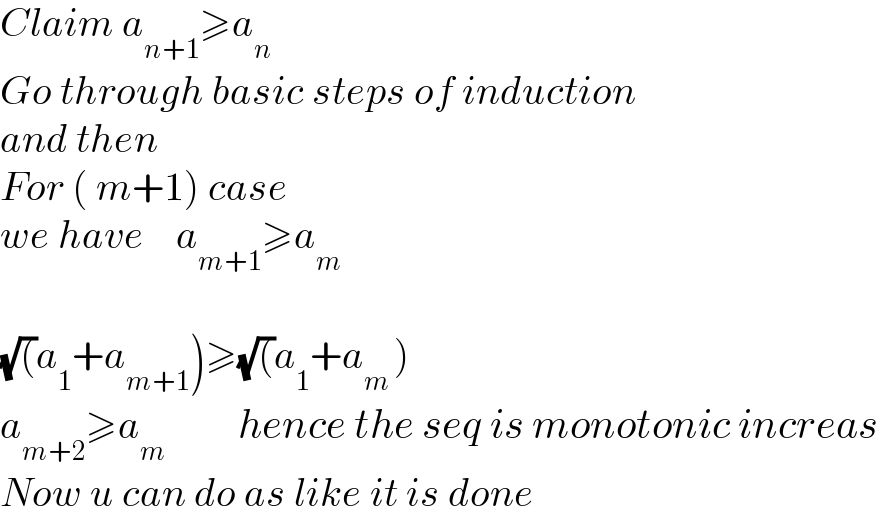Question Number 147529 by mathdanisur last updated on 21/Jul/21

Commented by mathdanisur last updated on 21/Jul/21

Answered by gsk2684 last updated on 21/Jul/21

Commented by Snail last updated on 21/Jul/21

Answered by Snail last updated on 21/Jul/21

Commented by gsk2684 last updated on 21/Jul/21

Answered by mathmax by abdo last updated on 21/Jul/21
![a_(n+1) =f(a_n ) with f(x)=(√(x+12)) (a_1 =12) f is defined continue on[−12,+∞[ f^′ (x)=(1/(2(√(x+12)))) >0 ⇒f is increazing on]−12,+∞[ so lim_(n→+∞) a_n =x_0 / f(x_0 )=x_0 (fix point of f) ⇒x_0 =(√(x_0 +12)) ⇒x_0 ^2 −x_0 −12=0 Δ=1+4(12)=49 ⇒x_1 =((1+7)/2)=4 and x_2 =((1−7)/2)=−3<0 let prove[that a_n >0 ∀n a_2 =(√(a_1 +12))>0 (true) let suppose a_n >0 ⇒ a_(n+1) =(√(a_n +12))>0 ⇒lim_(n→+∞) a_n =4](https://www.tinkutara.com/question/Q147556.png)
Commented by mathdanisur last updated on 21/Jul/21

